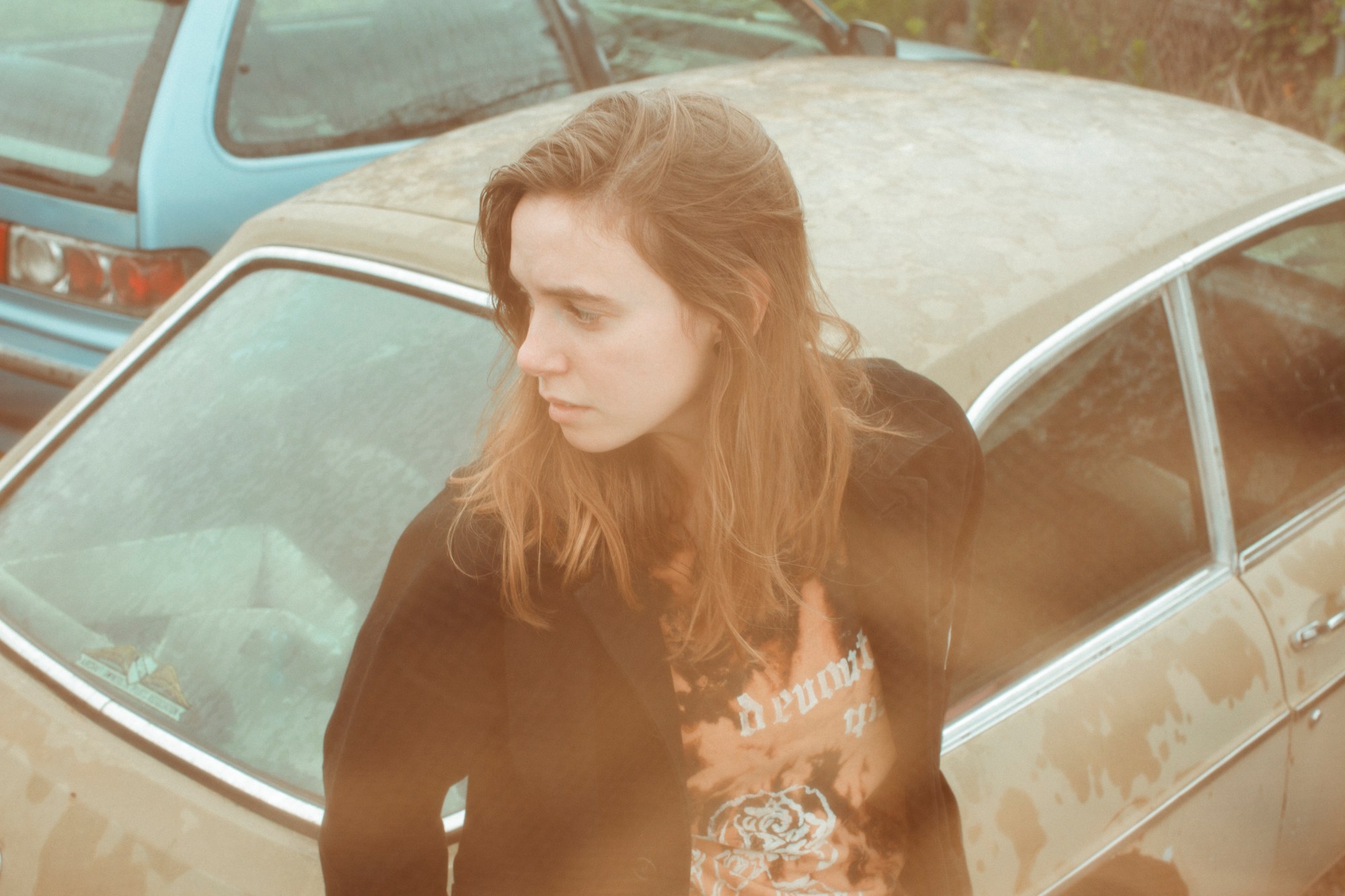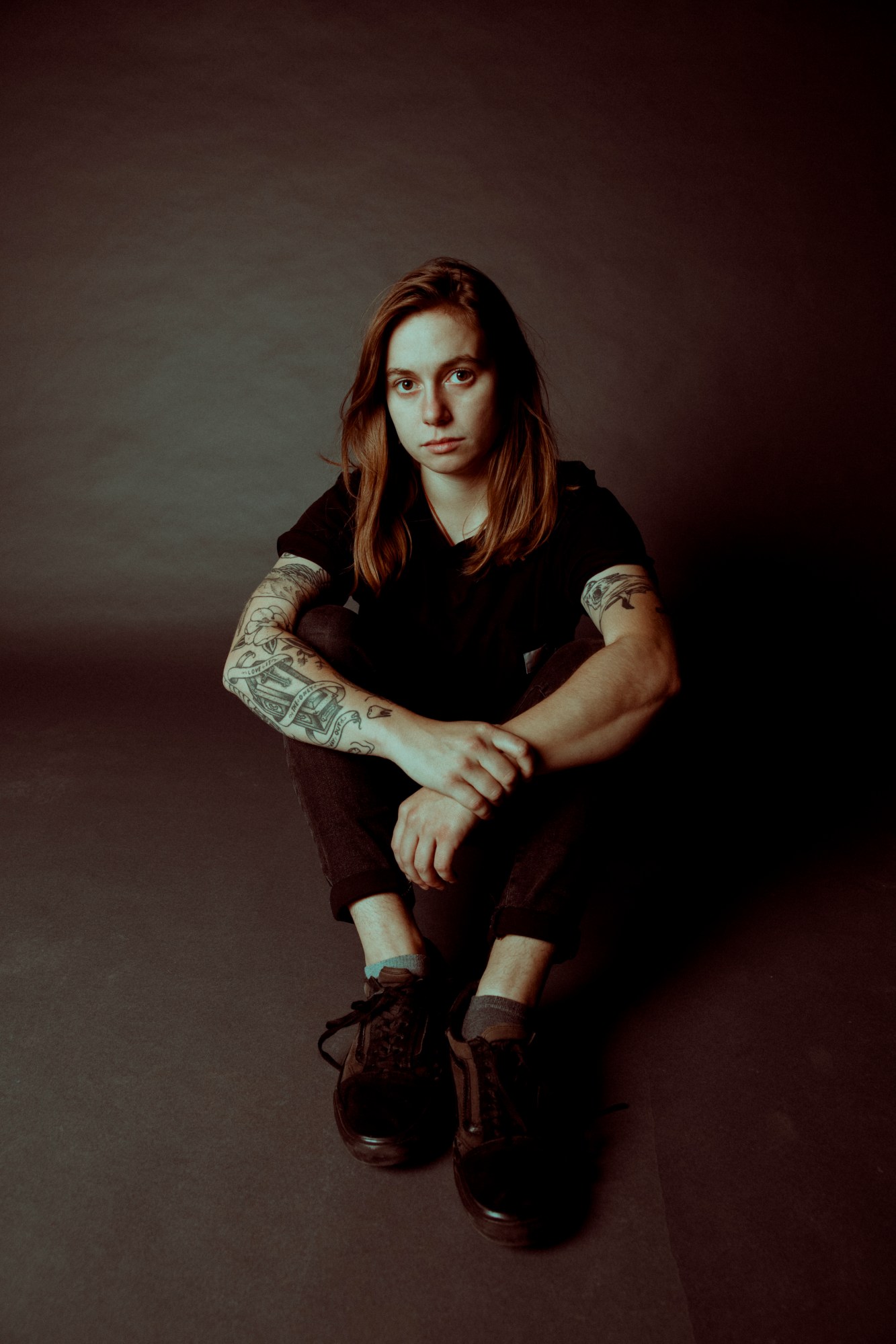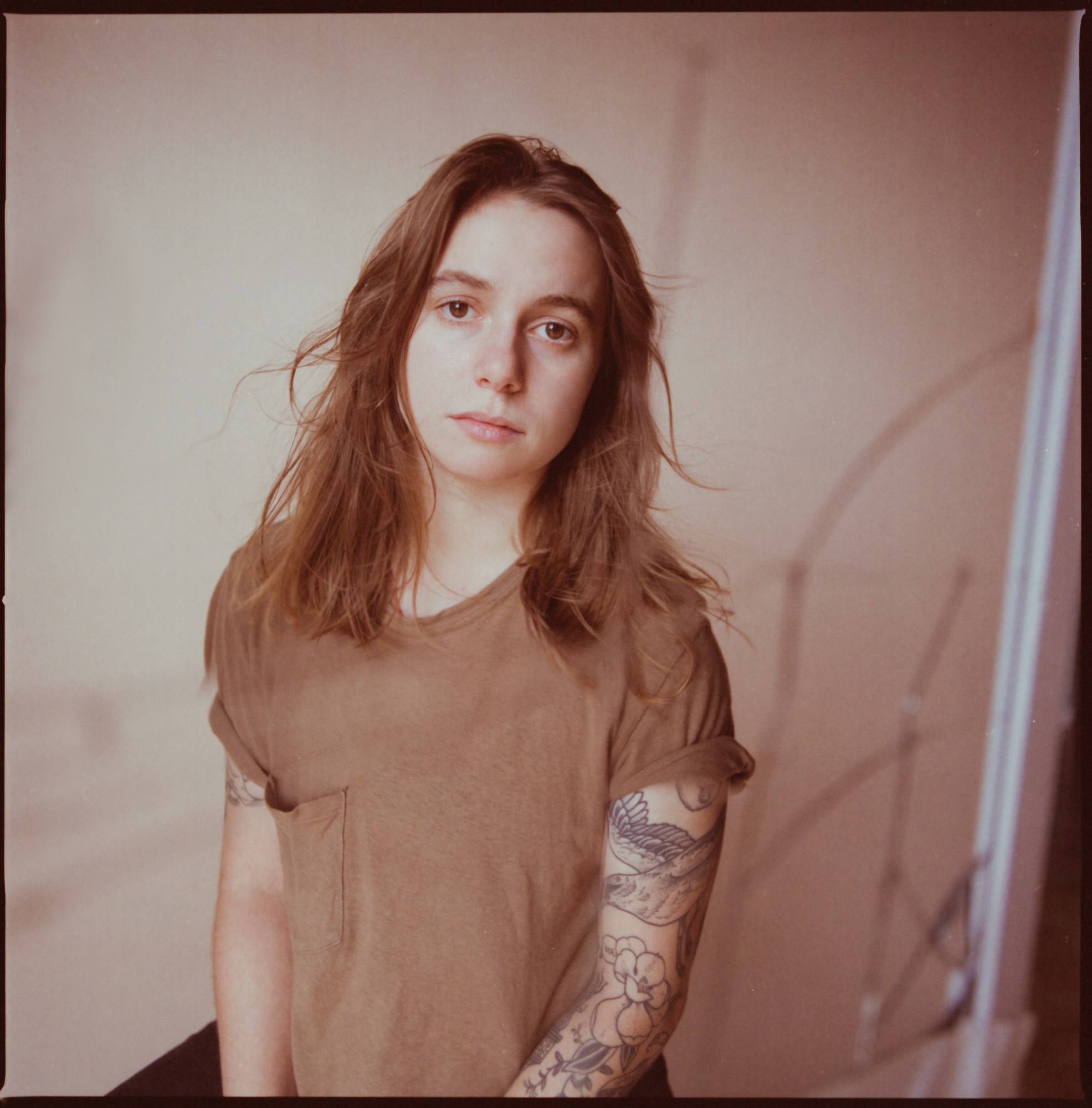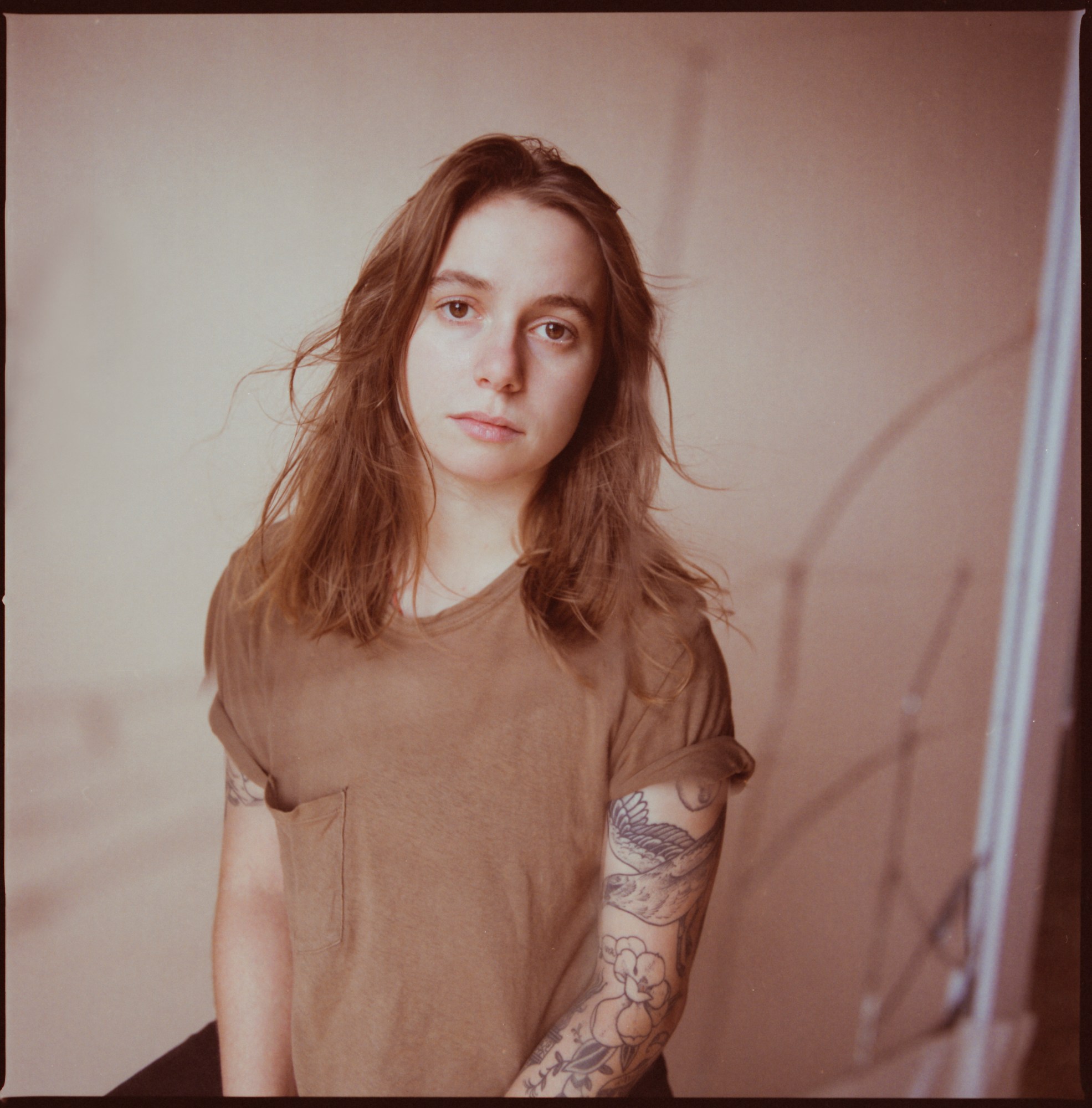For Julien Baker, the last six years have been a whirlwind of fame, humility and self-examination. The 2015 release of her debut album Sprained Ankle sparked an uproar for its heart-wrenching lyrics about mental health and addiction. The record all but guaranteed her future as a prolific storyteller and helped usher in a new class of indie-folk power players, like Lucy Dacus, Maggie Rogers and Phoebe Bridgers, who’ve captivated loyal fans with their tragically self-aware and confessional songwriting style.
In between touring Sprained Ankle, the 25-year-old singer-songwriter signed to Matador in 2017, went on to release sophomore album Turn Out the Lights and form the critically-acclaimed indie-rock supergroup boygenius with her aforementioned friends, Phoebe and Lucy. There was no slowing down: music defined every facet of Julien’s life. “All I had ever wanted was to be a musician,” she says over Zoom from her home in East Nashville. “I just thought about music and touring and what I had to do that day.”
But after wrapping the boygenius tour in November 2018, Julien opted to slow down. “We had planned this indefinite time off at the end of the year for me to just be a person because I’d been touring pretty consistently for several years,” she says. She needed to jump off of the “hamster wheel” she was on. “Man, I had time to just evaluate my life as a person, disconnect from music as my job a little bit,” Julien remembers. And it was scary. The singer saw two paths for herself: change her whole life or start touring again. “I knew that if I just went home and had nothing to do, I would probably not do well because I don’t do well with unstructured time,” she says. By 2019, Julien had thrown herself into touring again, which resulted in a lot of cancelled shows.

It was then that the musician decided to go back to Middle Tennessee State University and finish her undergraduate degree — the one she put on hold around the time her debut album was released. “I never thought I wasn’t going to play music, I just thought maybe I wouldn’t play music for people for a while,” Julien says.
Her decision to rethink her values isn’t too surprising in retrospect: Julien held herself to “an immaculate standard” of how to be. “When I fall even the tiniest percent short of it, I’m going to have a panic attack about it,” she says. As a queer Christian, she couldn’t help but question her faith — and think of how one of her favourite shows, The Good Place, portrayed the struggle to be a good person. Instead of seeing “good” and ”bad” as “black” and “white” — something her evangelical upbringing preaches — she began to see the grey areas. The first few years Julien was touring, she was straight edge, vegan and wouldn’t spend any money on excesses, like fast food or fashion. “Dude, all those things are so based on ‘This is right and this is wrong,’” she exclaims.
That mentality also extended to Julien’s sobriety. As of 2019, she had about six years under her belt. “Man, I just had a lot of my identity wrapped up in a kind of sobriety, that, along with the other convictions and standards, I held myself to,” Julien says. For years, sobriety was synonymous with her identity — both publicly and privately — she had to sever that construction. “I’ve been able to sort of edit the narrative over time about what it means to become sober and assign myself this redemptive, victorious-over-adversity-and-addiction protagonist character,” she admits. But while on tour in 2019, the singer-songwriter relapsed, and found herself back at odds with the same demons she initially faced.

Julien recalls that moment in time as a year-long “shit show”, choosing to laugh about it now because if she doesn’t, she says, she’ll cry. Her approach isn’t all too surprising; at shows, she’d temper the heavier nature of her tracks with a hefty dose of humour. But the singer-songwriter is realistic: she knows that if she continued down that destructive path she wouldn’t be alive. “It was very humbling to have the crux of your existence and your identity as an artist be something that you are no longer able to uphold,” she confesses.
Moderation is something that has continued to be a challenge for her. But she’s found less of a “black-and-white” perspective when it comes to her sobriety, specifically — one that allows forgiveness and human flaws. “I don’t want to set these ultimatum parameters for myself anymore, but I know that I overuse,” she admits.
Due to the pandemic, the Memphis-born singer’s touring sabbatical extended unexpectedly into 2020. While rediscovering herself, the time off allowed her the space to score a documentary and make music just for fun again. “Live shows are what got me into music because I love sharing music with other people, but when I dismantled some of my obsessive tendencies and stepped back from the big list of philosophical musts that I had created, I just wanted to play piano in my room,” Julien says. She found joy in her craft again, and that’s when her latest record Little Oblivions began to surface.
There’s a striking shift between her new album and her previous work. During the making of Little Oblivions, Julien found herself listening to everything from Sad Songs & Waltzes by Keith Whitley to The National’s I Am Easy to Find and Carly Rae Jepsen’s Dedicated. And while her first two records clung to stripped-down sparse arrangements, on Little Oblivions, the musician opted for a more cinematic approach akin to her old band Forrister.
With the help of producer and audio engineer Calvin Lauber, Julien used bolder drum bursts and lush synth-work to let the tracks take up more space. “When I made Turn Out The Lights it was like I felt beholden to this conviction that being as minimal as possible was a challenge and something that I was going to work with as a form,” she says. Part of that had to do with timing. Little Oblivions was made over the course of more than a year, with multiple rounds of demos instead of being recorded in five days — she had a lot more time to experiment with what served the song.
Thematically, the music doesn’t stray far from her prior work. Julien, after all, has never been one to hide her shortcomings, missteps or buried emotional trauma. So it’s no surprise that with Little Oblivions she tackles everything head-on. “I can accept very difficult things and say, or sing them out loud, and just sit with pain,” she says, nearly knocking a guitar over. That idea of “sitting with discomfort”, she admits, sounds “masochistic”, but it’s also been therapeutic. By letting her lived experiences sit within a song, she’s able to explore them without immediately having a panic attack or wanting to drink. And on Little Oblivions, she lays her flaws bare. “This record is full of all my dark thoughts,” she says.

Throughout the album, Julien is her own harshest critic with more self-awareness than ever before. But in her eyes, she sees loneliness as the apt consequence of her self-destructive behaviour. “I was on a long spiral down/ but before I make it to the ground/ I’ll wrap Orion’s belt around my neck and kick the chair out,” she sings with an exasperated lilt on “Heatwave”. With vocal assists from Lucy and Phoebe on “Favor,” Julien sees her own downfall as the path forward: “What right had you not to let me die?”
Julien candidly grapples with the pain and progress of sobriety throughout Little Oblivions, starting with the opening line of the first song on the record, “Hardline”, where she laments: “Blacked out on a weekday; is there something that I’m trying to avoid?/ Start asking for forgiveness in advance for all the future things I will destroy.” Having gone through a breakup during the making of the album, Julien offers unspoken words to an ex on “Ringside” and “Song in E”, and struggles with being a good Christian on the hymnal closer “Ziptie”. “I started to become an entirely different person and peel back a whole bunch of layers of my brain,” Julien recalls.
Despite her personal struggles, she is committed to doing the work to remain balanced. While Little Oblivions doesn’t let Julien spare herself, it’s been liberating for her to express her inner thoughts without judgment. No longer is she here to be anyone’s saviour or preach what it means to be a “good person”. She is, after all, just trying her best.



